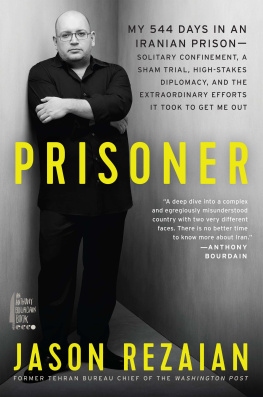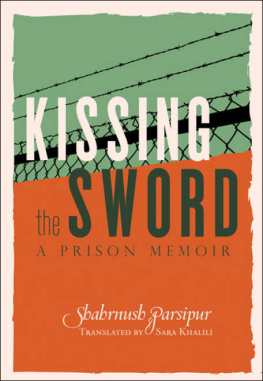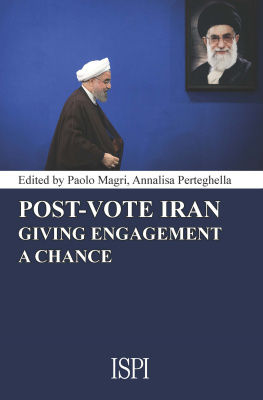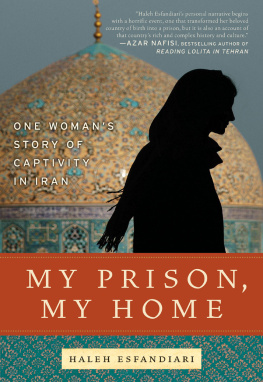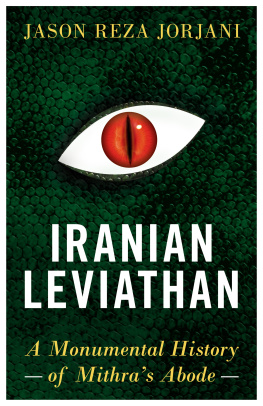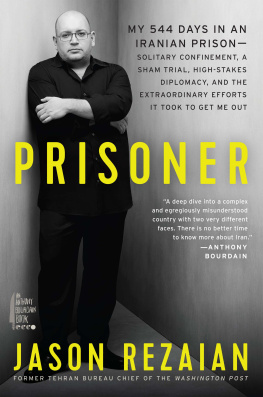I t was a Tuesday afternoon in Tehran in the middle of Ramadan. My wife, Yeganeh, also a journalist, and I literally had our bags packed to leave for the United States. Her U.S. immigration papers had come through, and we had tickets for a flight that Friday night, with plans to travel to America and be away from work for a couple of months.
I had noticed, walking around town, that contrary to past years, some restaurants were open during daytime hours this Ramadan. I took it as a small sign of pragmatism on the part of the government. In the past fasting had been enforced and restaurants serving during daylight hours were fined or shuttered. Now they werent. Progress? Maybe.
So for the last piece I would work on for the Washington Post before leaving Iran for our extended break, I went to interview a guy who had an American-style diner in Tehran. It was the kind of story I loved doing. Food, and eating it, have always been a passion of mine and I had recently found ways to bring gastronomy into my coverage of Iran, but it was the incongruity of the various elements that attracted me. This sort of piece was my specialty.
In the middle of our conversation about serving chili dogs and sliders during Islams holiest month, around three oclock in the afternoon, I got a frantic call from my wife.
Somebodys trying to destroy our lives, she told me. You need to come home now.
I rushed home from the east to the west of the vast capital and when I got there, she was crying hysterically. She showed me an email shed received, written in Farsi, which I couldnt read.
Pay us 10,000,000 toman by tomorrow at 3:00 p.m., she translated, or well expose you for the whore that you are.
It seemed so strange. It was obviously directed at herthey were making reference to her personally. It was from an email address we didnt recognize. The amount they claimed they wanted was only about three thousand dollars.
There are people trying to destroy us, she said.
It wasnt the only strange Internet activity wed seen recently. A few days before, Id gotten a phishing email that appeared to be from a photographer and dual Iranian and U.S. national I worked with frequently who did a lot of freelance work for the Washington Post and had become something of a semiofficial photographer for President Rouhani, traveling with him and his entourage extensively.
And just the day before, an Iranian source of mine who was very close to Irans foreign minister, Mohammad Javad Zarif, had sent me a text saying that he had received an email from a Gmail account that looked like yours but wasnt yours, with a link. Be careful.
These phishing emails had started appearing just before I went to Vienna, where Id covered the latest round of the nuclear negotiations. Id written a piece for the Post saying that the talks hadnt come to a final agreement but were being extended for another six monthseveryone knew that neither side wanted the diplomatic process to break down.
I called our friend Reza, who helped us with IT matters. I thought hed be able to figure out what was going on by checking programs on our computers that I didnt know about. He came to the apartment, and he looked at the activity of our Gmail accounts. Over the previous few hours, we discovered, both of our accounts had been accessed from a server in Russia, multiple times.
Look, this could just be people trying to get financial information from you guys, Reza said. He changed the passwords. I thought everything was fine at that point.
We should just go to the airport and leave tonight, Yegi said.
This is not something that we should be overly concerned about, I said. Nothings going to happen. You can go to Dubai and wait for me if you really want to, but I need to finish this Ramadan story.
Around eight or eight thirty, we called two cabs, one for ourselves and one for Reza. Because gasoline is cheap in Iran, taxis are also inexpensive and readily available twenty-four hours a day. In every neighborhood, there are several taxi shops, so within a couple minutes, you can usually get a car.
Yegi and I were headed to a surprise party for her moms fifty-sixth birthday, a dinner at a cousins house. We were dressed casually, me in jeans and a pink shirt, Yegi in a beautiful, short blue dress I had just bought for her, and wearing makeup and jewelry.
The doorman called from downstairs when the taxis arrived. We took the elevator down with Reza four floors into the parking garage in the buildings basement, where cars arrive.
When the elevator door opened, there was a guy standing there with a gun pointed at me.
There was more than one guy, but I just remember the one with the gun. I was focused solely on him. He wore a gray suit and was very nondescriptshorter than me, with a gut, a comb-over, and a mustache. Straight out of central casting. His gun was a little revolver.
Rezaian? he asked.
Yeah, I said, startled.
He propped the elevator door open with his foot. I went to grab my cell phoneI dont know who I thought I was going to callbut he knocked it out of my hand. It was a very frantic scene. He had a piece of paper that was a warrant for our arrests, although it was unclear which of the many competing seats of authority had ordered it. The men didnt identify themselves. My Farsi was good, but not good enough in that moment to understand completely when he said that we were being arrested.
Dont make any noise, the man with the gun ordered us. Were going back to the apartment.
I had no idea what was happening. Id never seen anything like this before. It was so jarring. The man with the gun and his cohorts took all three of us back upstairs.
I put the key in the lock and opened our front door, fumbling and shaking the whole time.
Little by little, many more agents arrived. They separated Yegi, Reza, and me, sitting us on opposite sides of our apartment. Most of them wore surgical masks to hide their identities. Several had video cameras and were filming everything.
They ripped our home apartransacked our place. They went through everything. They even cut open tea bags. I dont know what they were looking for. Later, we were told, it was microchips they were after.
I didnt know what this was about, but I thought the only evidence that could potentially be used against us was a storage locker we kept full of liquor in our apartments garage. We had a good stash: twenty bottles of hard liquor, ten or fifteen bottles of wine, and a hundred fifty bottles of beer. Two bottles or two hundred bottles, I knew it didnt really make a differenceit was the same crime. We had to lose the key.
Booze. Flush, I said to Yegi, using words that, even if the agents spoke English, they probably wouldnt understand.
Yegi is smarter than I am. She figured it out, and she had the storage key on her key chain. She told the guard that she needed to use the toilet, and she was able to do it and tell me with her eyes that she had flushed the key.
When they asked us if we had storage, Yegi said, No, the landlord uses the storage. This is common in Iran, and they accepted her white lie; also common.
We sighed with relief.
More people showed up, agents filling the seventeen hundred square feet of our two-bedroom apartmentthe big living room with a terrace, the kitchen, the bedroom wed converted into an office because we both worked from home. The agents walked over our hardwood floors covered with antique rugs.
They confiscated all of our electronic equipment and told us to put our cell phones and laptops on the dining room table.
Give us all the codes for accessing your devices, email, and Facebook.

